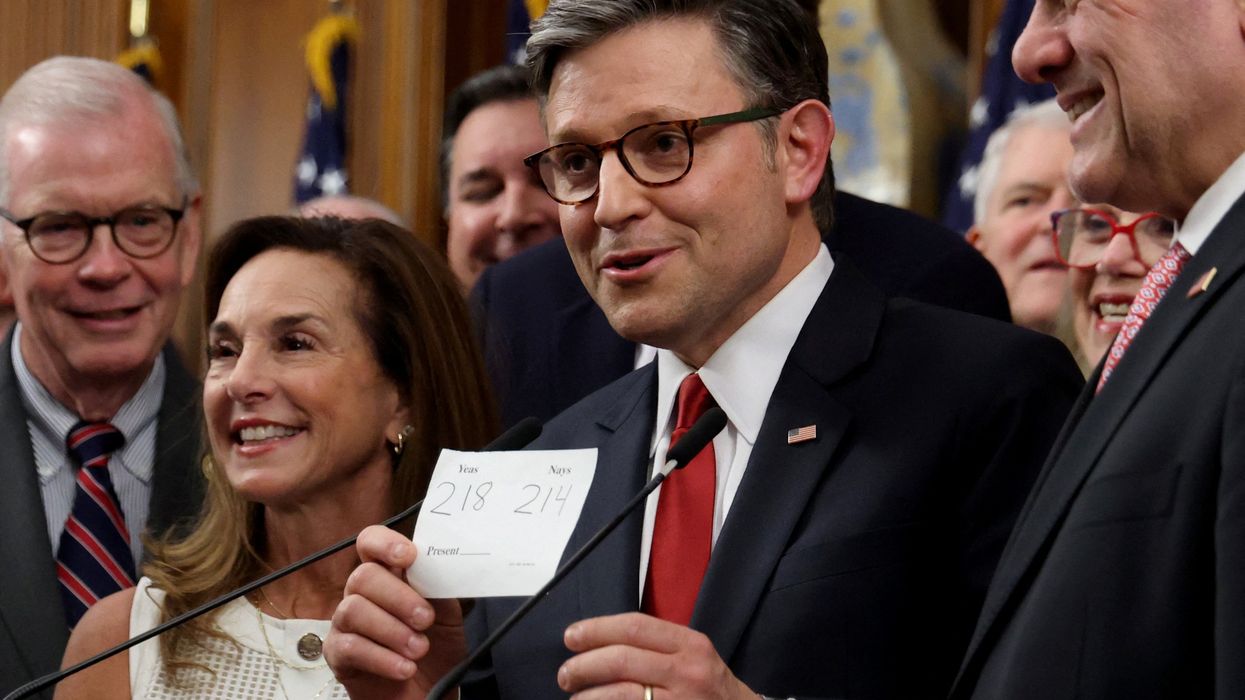Up until Thursday afternoon, July 3, Democrats were hoping that some GOP holdouts in the U.S. House of Representatives would sink President Donald Trump's "big, beautiful bill."
House Republicans who were criticizing the U.S. Senate's changes to the bill had two main complaints. Budget hawks and members of the Tea Party and the House Freedom Caucus argued that the bill added too much to the United States' national deficit, while more moderate Republicans in swing states were worried about draconian Medicaid cuts.
But in the end, only two House Republicans voted against the megabill: Rep. Thomas Massie of Kentucky and Rep. Brian Fitzpatrick of Pennsylvania, while House Democrats remained united in their opposition. And the bill, having passed, now goes to Trump's White House desk to be signed into law.
READ MORE: Trump admin's latest theatrics have troubling echoes — of a 1930's German concentration camp
In an article published after the bill passed, Politico's Ben Jacobs takes a look at House Republicans who were critical of Trump's megabill before folding and "meekly capitulating" in the end.
"At 6:50 PM on Wednesday, (July 2)," Jacobs observes, "conservative hardliner Rep. Keith Self (R-Texas) tweeted that the Senate's version of the Republican megabill was 'morally and fiscally bankrupt.' At 3:20 AM Thursday morning, Self nevertheless voted to advance that very bill. Rep. Chip Roy (R-Texas), likewise, slammed the Senate amendments as a 'travesty' that undermined 'the good things' in the House bill. He, too, joined Self in finally supporting the legislation in the wee hours Thursday morning. Both held out longer than their moderate colleague Rep. David Valadao (R-Calif.), who said in a post on X last week that he could not vote for any Senate changes to the Medicaid provisions in the House version of the bill."
Jacobs continues, "These reversals may be surprising, but they were not remarkable. It was par for the course for congressional Republicans who, in recent years, have shown a proclivity for taking bold, theatrical stands before meekly capitulating in the face of political pressure — particularly from President Donald Trump."
House Republicans who were critical of the Senate's version of the megabill, Jacobs notes, had the option of making changes and sending the bill back to the Senate, but doing so would have meant missing Trump's "arbitrary deadline" of July 4.
READ MORE: This Republican's heartless shrug should never be forgotten
"The truth is that there really wasn't any other option but to stick to an arbitrary deadline, because it's what Trump wanted," Jacobs explains. "Steve Scalise, the number two House Republican, bluntly explained that extending the deadline to make last-minute alterations wasn’t going to happen because Trump didn’t want it…. When it was all over, the holdouts justified the Big Fold in predictable fashion, claiming to have won valuable concessions even if none of those would be enacted into law."
READ MORE: Democratic strategist warns Trump could try to impose martial law before 2026 midterms
Read Ben Jacobs' full article for Politico at this link.


